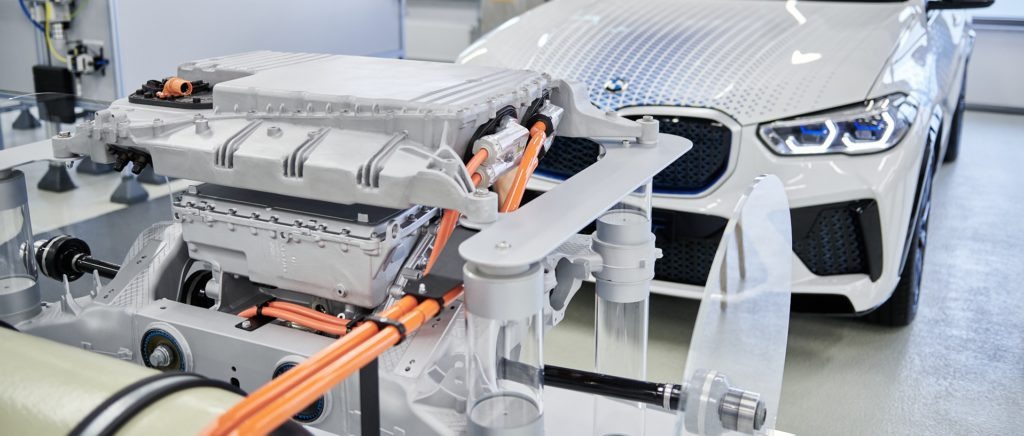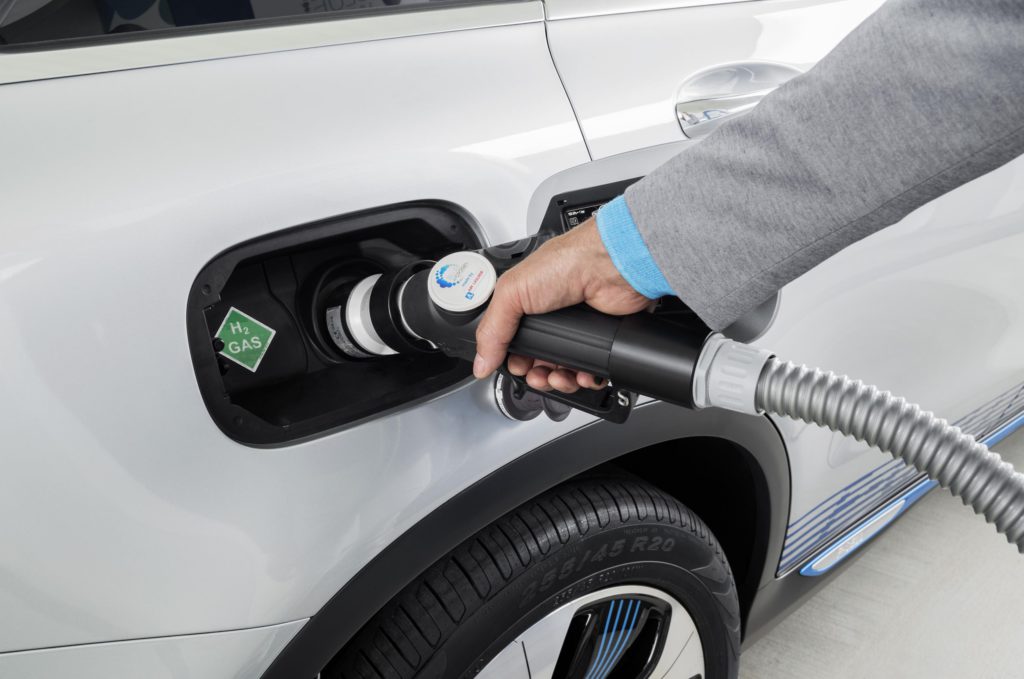Renault’s Hyvia sets out ambitious plans for hydrogen in the logistics sector
07 July 2021
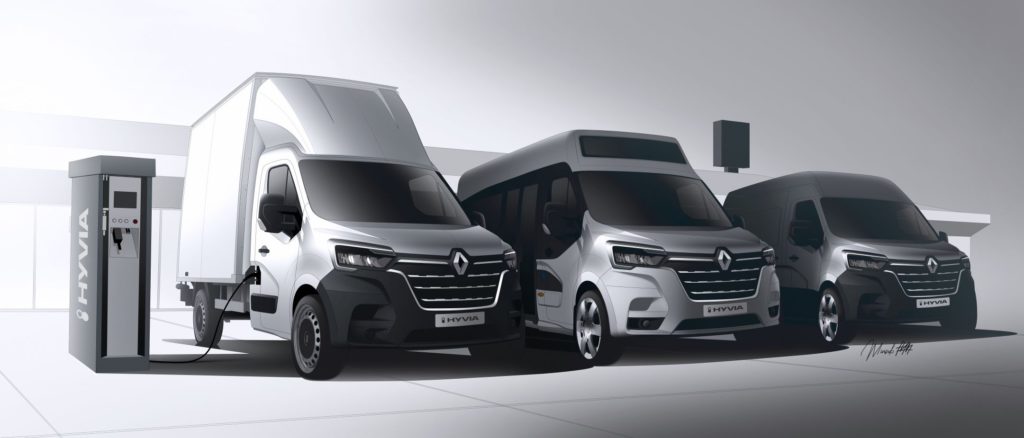
Hyvia, a joint venture between Renault Group and Plug Power, has launched its plans to sell hydrogen fuel-cell commercial vehicles across Europe. The company also has ambitions to develop an entire hydrogen ecosystem by the end of 2021.
The automotive industry is waking up to the potential of hydrogen as a fuel. Hyvia will use the technology in the commercial-vehicle market, which suits the logistical challenges posed by switching to zero-emission technology. Both increased range and limited refuelling times are required by this market, which battery-electric technology struggles to achieve. However, the company is aware that more needs to be done than developing the fuel-cell.
Therefore, Hyvia will develop green hydrogen, store the fuel, and distribute it through a network of refuelling stations. The company plans to achieve this by the end of the year, while also bringing three vehicles to market at the same time.
Should the development of both the infrastructure and technology prove successful, bosses at the company have suggested they may develop passenger-cars based on fuel cells in the future. However, for now, the only area of focus is the commercial-vehicle market.
Van offering
Renault Group has a 40% market share in the electric light-commercial vehicle (eLCV) sector. Alongside this, the manufacturer has been developing fuel-cell vans and trucks since 2014. Hyvia is will draw on this experience, offering a range of hydrogen LCVs by the end of 2021 and aims to have a market share of 30% of the whole LCV market by 2030.
The Master Van H2-TECH is a large van that is best suited for the transport of goods, with a range of up to 500km and a cargo volume of 12m3. The Master Chassis Cab H2-TECH has even more cargo space (19m3) and a range of 250km. The Master Citybus H2-TECH is an urban minibus that can carry up to 15 passengers, ideal for businesses, municipalities and local public services, with a range of 300km.
These vehicles are built on a dual-power architecture, using both electric and hydrogen-based energy. The vehicles have a range of up to 500km: 100km from electrical power, the rest from hydrogen. They are equipped with a 33kWh battery, a 30kW fuel cell, and tanks containing between 3-7kg of hydrogen, depending on the version.
Fuel-cell technology offers much more convenience than battery-electric drivetrains, especially in the world of logistics. They can be driven for great distances and refuel in minutes, much like current petrol and diesel engines. However, the only emission from the tailpipe is water – a by-product of the hydrogen and oxygen reaction to create electricity for the vehicle motors.
However, just like in the early days of battery-electric vehicle (BEV) technology, there are concerns around how the ‘fuel’ is produced and the infrastructure that is available for adopters to use.
Creating a microsystem
To combat these concerns, Hyvia is looking to develop the fuel-cell market beyond the vehicle and create a new microsystem to manage the production of green hydrogen and build the European infrastructure for its vehicles. It aims to implement this by the end of the year.
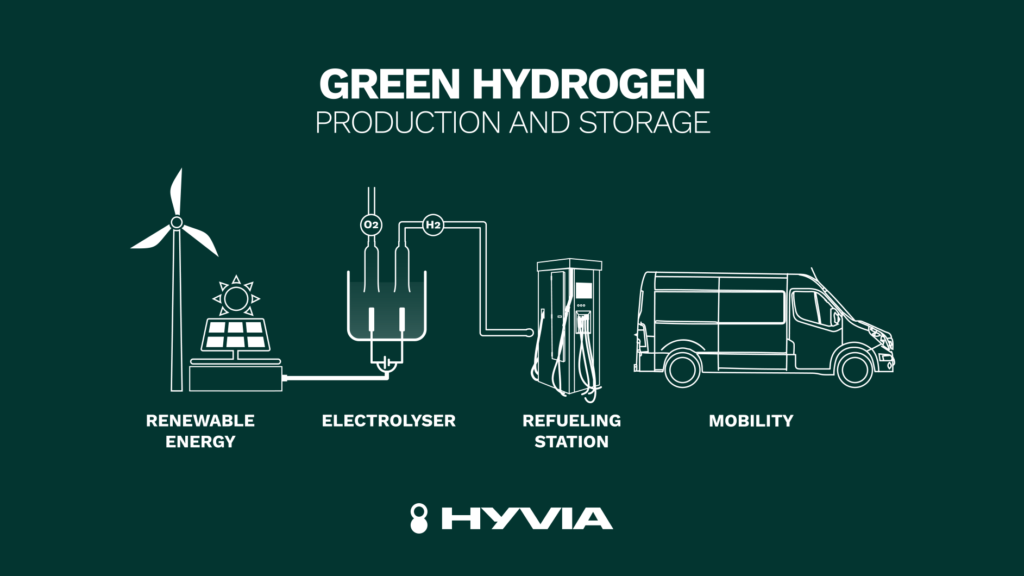
‘To meet the challenges of hydrogen mobility, we need to offer fuel-cell vehicles and the entire ecosystem,’ said David Holderbach, president of Hyvia. ‘[The company] offers turnkey mobility solutions that leverage the production, storage, distribution of green hydrogen and a wide range of H2 LCVs. These solutions will meet the new needs of businesses, large accounts, fleets, and local communities and drive energy transition as a whole.’
Harnessing the 20-year experience of Plug Power in the hydrogen market, the brand aims to have a network of more than 100 refuelling stations that dispense over 40 tonnes of hydrogen every day. Hyvia will offer electrolysis solutions, mobile-storage stations and, by late 2021, hydrogen-refuelling stations. These stations will be available to rent or purchase.
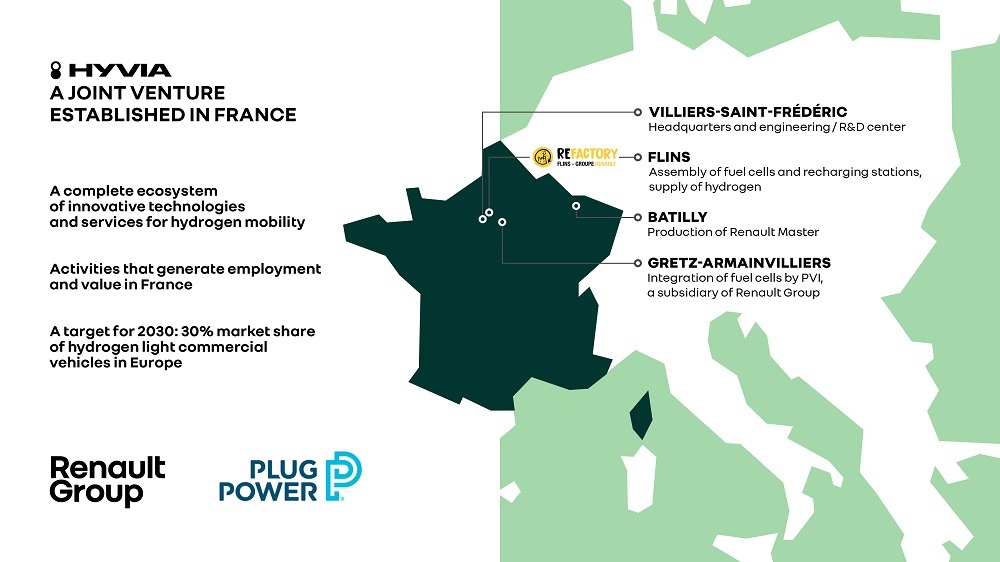
The entire process will be based in France. Hyvia has headquarters in Villiers Saint-Frédéric, the home of Renault Group’s LCV engineering and development. Assembly of fuel cells and hydrogen-refuelling stations will begin later this year at Flins, while production of the vehicles will take place at Renault’s plant in Batilly.
Growing awareness
The European Green Deal initiative from the European Commission calls for a reduction in carbon emissions of 50% by 2030. Hyvia believes that this can only be achieved by applying u hydrogen technology to the transport sector.
Alongside vehicle manufacturers, governments too are aware of the need to develop a hydrogen ecosystem. France is investing €9 billion into green-hydrogen development, with Germany funding research and development in the fuel with up to €7 billion.
But a challenge for transport is limited availability of refuelling stations, with only 150 currently in Europe and a forecast of 3,500 by 2030. Hyvia plans to increase this number while also lowering the cost of vehicles, fuel cells and the green hydrogen itself through new research and partnerships.
Should these challenges be overcome, it is possible the technology could find itself being used in passenger cars alongside the logistics sector. When questioned, bosses at Hyvia did not dismiss the opportunities, stating that it would make sense if the technology becomes successful. This would bring Renault alongside Toyota, Hyundai, BMW and Jaguar Land Rover in exploring and using fuel cells for the passenger-car market.
